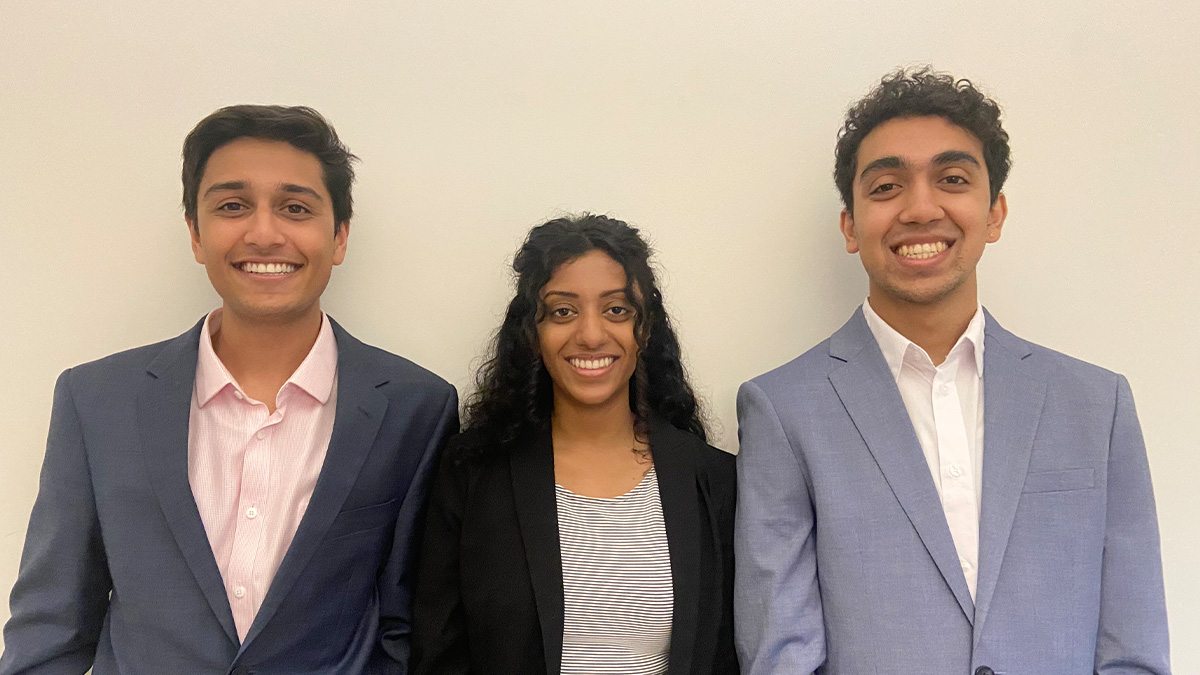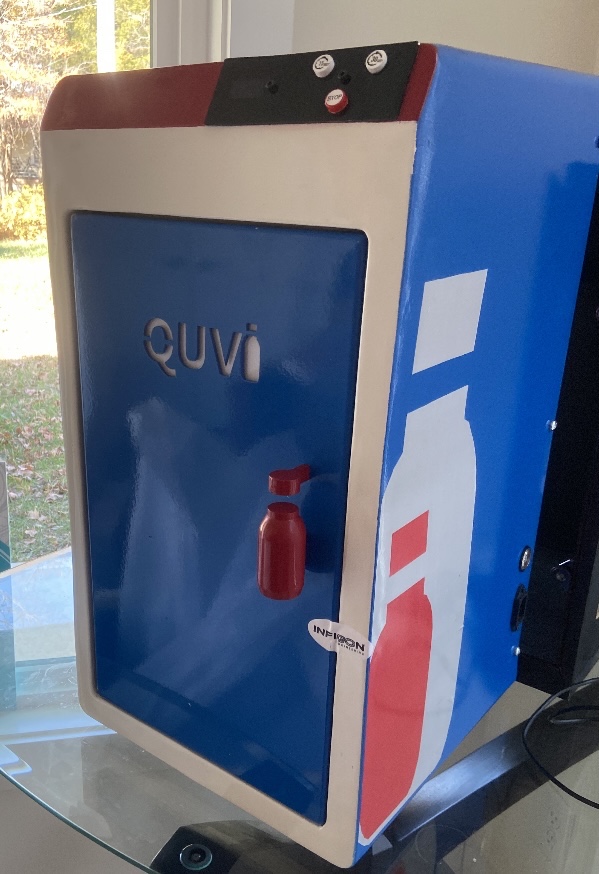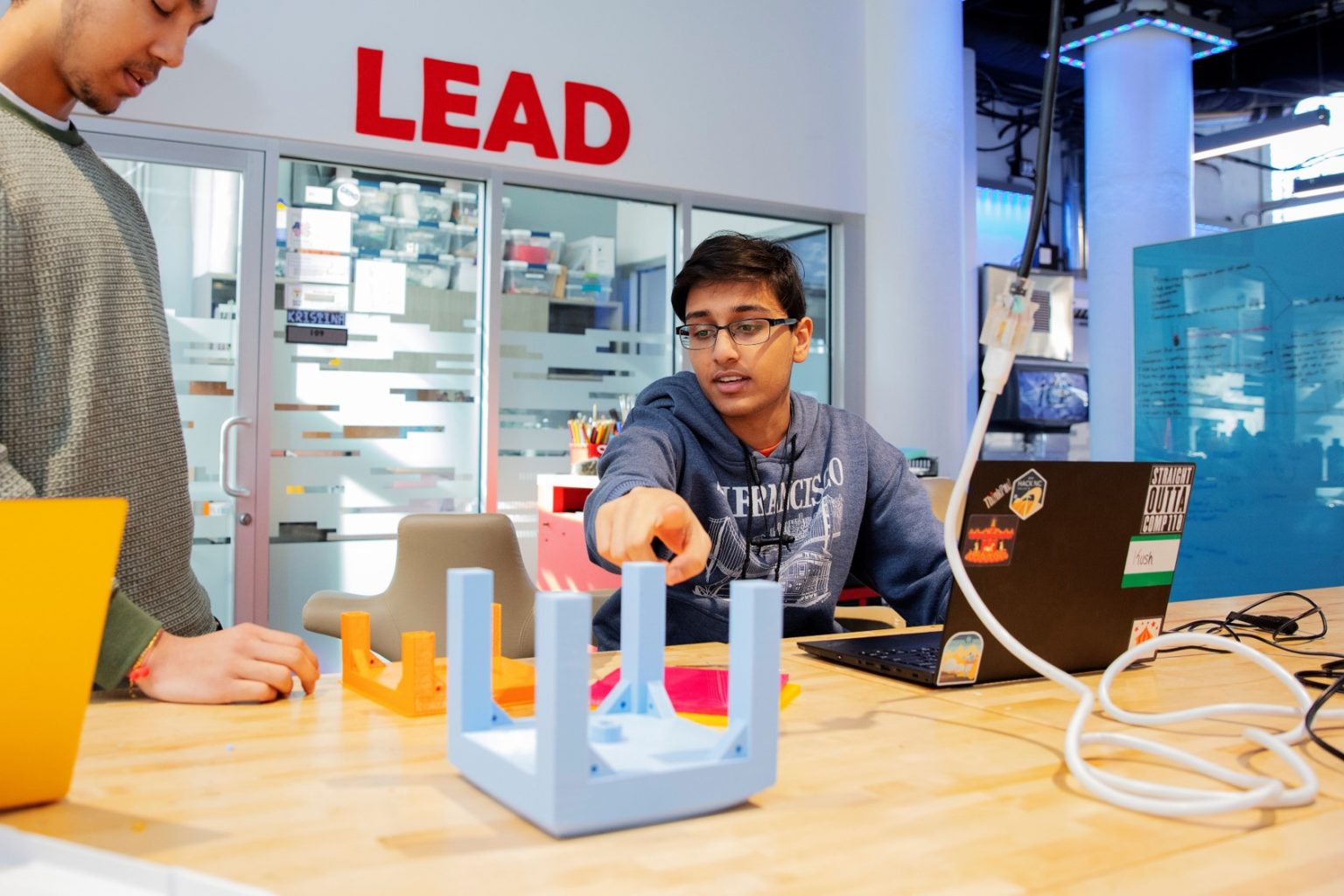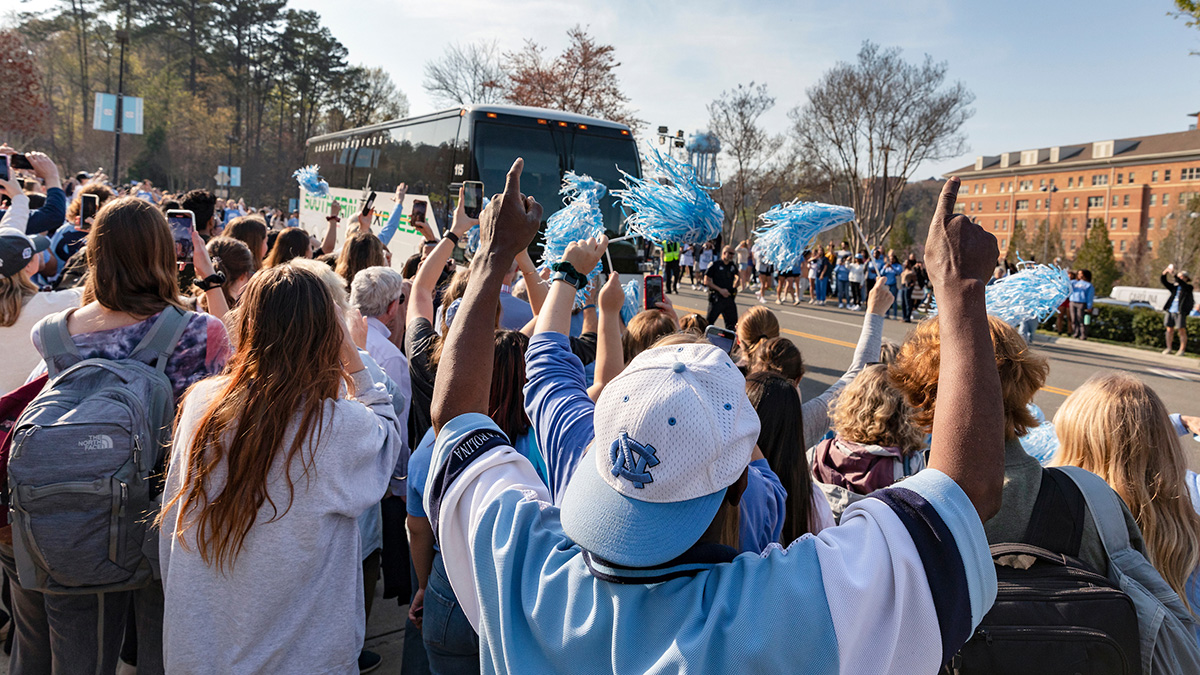Student entrepreneurs competing at ACC InVenture Prize
Carolina students Alekhya Majety, Kush Jain and Harshul Makwana are pitting their innovation — a device that cleans reusable water bottles using UV light — against the top student innovators in the Atlantic Coast Conference at the InVenture Prize.

Alekhya Majety never expected to have CEO, cofounder and chief marketing officer titles listed on her resume. She never even planned on going into the business world.
The junior from Cary, North Carolina, arrived in Chapel Hill eager to get the skills and knowledge for a career in health care as a physician assistant. But by the end of her first year at Carolina, she was an entrepreneur and leader of two different companies.
In addition to studying neuroscience, chemistry and now entrepreneurship in the College of Arts & Sciences, Majety currently serves as the CEO of Railcare Health, which operates two mobile clinics that provide free medical care to uninsured or underinsured residents in rural North Carolina, and is the cofounder and CMO of QUVI, a startup company designing a device that cleans reusable water bottles using UV light.
QUVI was what initially led Majety to test the entrepreneurial waters. She was invited by friends and fellow Tar Heels Kush Jain and Harshul Makwana to take part in the UNC Makethon as first-year students and the team begin developing their product. Since then, QUVI has turned to Innovate Carolina’s network of startup hubs, mentors and funding to bring their product — and company — to life.
This weekend, the QUVI team will be pitting their company’s product up against the top student innovators in the Atlantic Coast Conference at the InVenture Prize. The annual event is an innovation competition where students from each university pitch their creations to a panel of judges for prizes upwards of $15,000
Ahead of the competition, Majety discussed her path to entrepreneurship, QUVI and the company’s next steps.
What is QUVI?
We created a water bottle sterilizer. In our freshman year, we all realized that our water bottles were really dirty, and we rarely washed them, especially living in a dorm where you don’t have access to a dishwasher. We noticed that there was mold growing around our bottles, and they smelled bad. And we thought “OK, there must be an easier way to clean water bottles.”
We started looking into UV light and the way it has been used in the medical industry to sanitize and sterilize their equipment for decades. We tried to see if this could translate to water bottles on campus. This was prior to the pandemic, so we were exploring how a UV light can sanitize the interior, the exterior and the lip of bottles. This is different from commercial sanitization boxes, which mainly just sanitize the outside of general everyday objects. We wanted to direct this towards specifically water bottles.
When the pandemic hit, people became more hyper-aware of the idea of sanitization and the lack of cleanliness in public areas. We thought, “Why don’t we sanitize not just water bottles? We can also make our device be able to sanitize everyday items like wallets, phones and keys while also being able to sanitize those water bottles — the interior and exterior.” So that’s where the idea came from and how it’s changed.
What has it been like launching a business as a college student?
At first, we were obviously all very excited, so we were devoting a lot of time to it. Last summer, we all decided to just commit our time to QUVI and making sure we got a QUVI unit built.
But the next part is honestly the most intimidating, which is sales. Now, we’re going to have to maintain customer service. We’re going to have to maintain all the aspects of running a true business and bring on more people. But overall, we’ve been working to balance school and QUVI. Initially, all three of us were always at every single meeting, no matter what it was. Now we kind of divide and conquer because all of us know a good amount about the product. So we’re able to divide it up and divide that workload.
You’re a pre-med student looking to go into a career in health. How has this experience helped you prepare for that?
It has expanded my communication skills, it’s expanded my network and it has really enhanced my understanding of the business community. It’s been a great experience to look at [health care] from a business perspective and not just the medical side and apply networking skills and communication skills to pull people in and have them understand you a little bit better.
And I think especially with Railcare Health, I’ve had a chance to work with communities that you generally would not have the opportunity to interact with. These are people who fear health care, not solely because they don’t have access to health care, but they’re worried about what will happen if they go seek medical care. They’re worried about the aftercare and if they’ll be taken care of. You have to consider everything else — if they’re able to pay for it, if they’re able to locate transportation to be able to go get these tests and if they can handle the results of them. And the business aspect of my experience has allowed me to holistically approach health care and observe a different aspect of my community.
What does the ACC InVenture Prize mean to QUVI, and what does it mean to you to be representing Carolina?
It gives us more recognition, which we are very grateful for. We took a step back when we were really working towards getting that unit of QUVI made because all of our focus is going toward, “We just want this done.” The InVenture Prize will get the wheels back turning and get a chance to get awareness of our device overall.
I think it’s an amazing opportunity. I never thought we’d get this far, especially to be the team selected to represent UNC. It’s an amazing accomplishment, and I’m really proud to be representing UNC. I hope we’re able to accomplish what we were selected for and make UNC proud.
Vote for the QUVI team at the ACC InVenture Prize
You can also vote for the team by texting “UNC” to 415-965-7445





